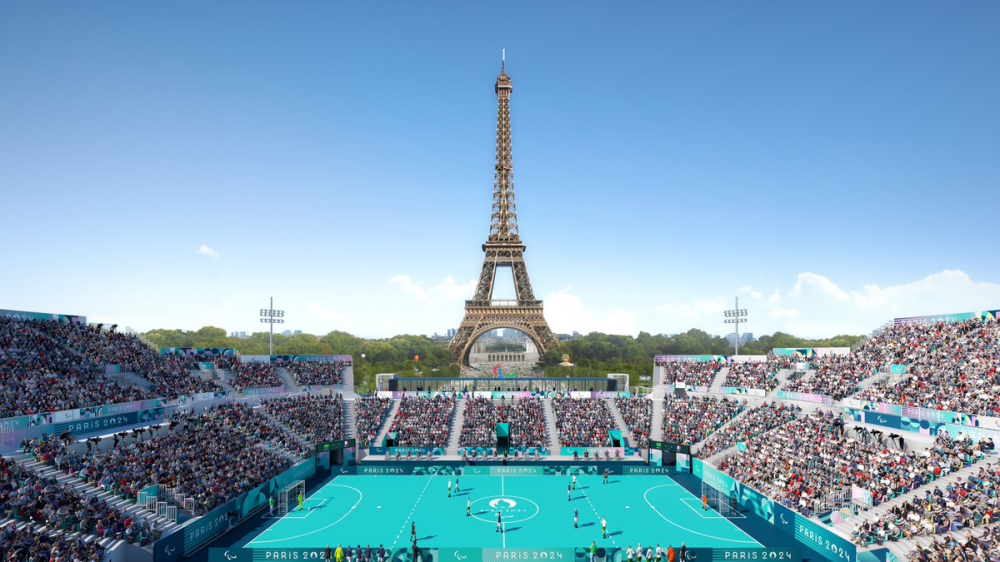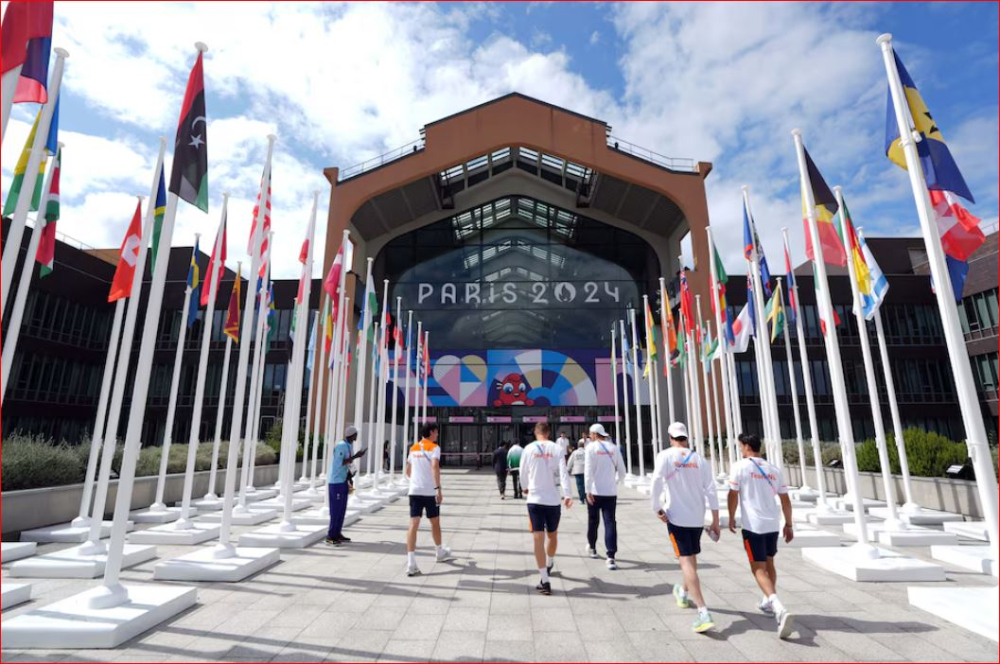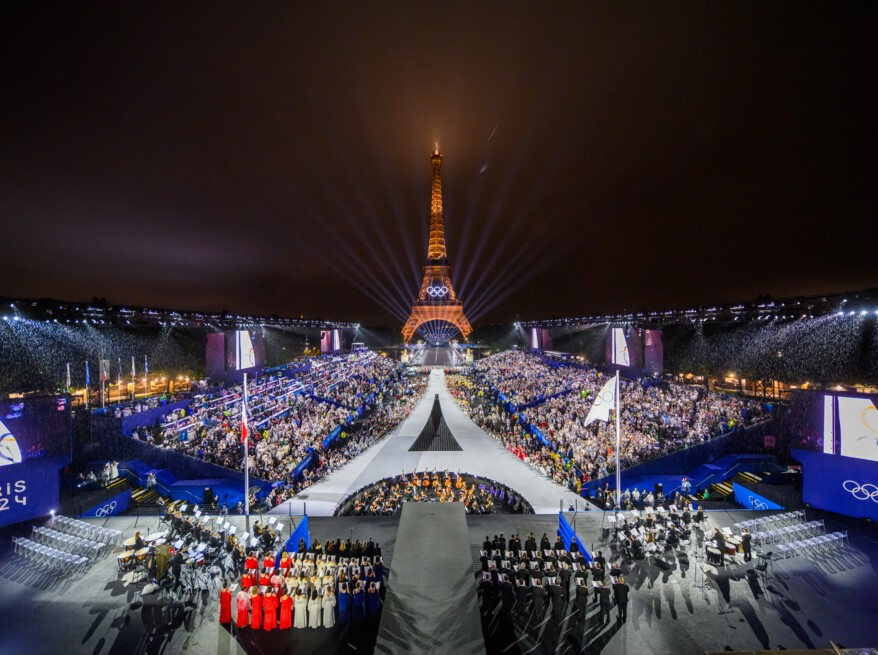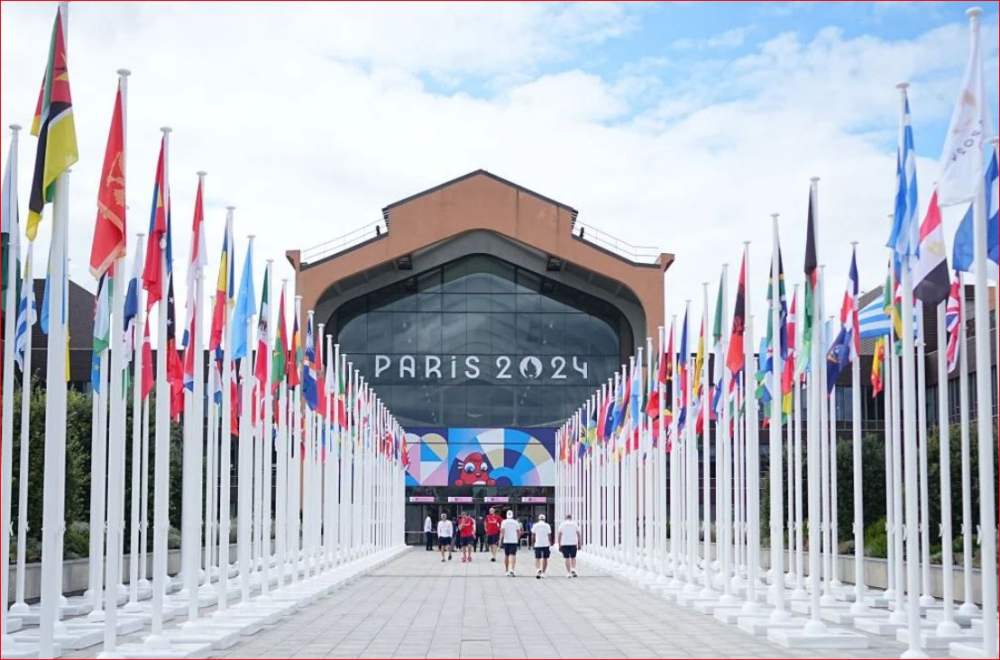The economics of the Olympics

We use Google Cloud Translation Services. Google requires we provide the following disclaimer relating to use of this service:
This service may contain translations powered by Google. Google disclaims all warranties related to the translations, expressed or implied, including any warranties of accuracy, reliability, and any implied warranties of merchantability, fitness for a particular purpose, and noninfringement.

Highlights
- 5 billion to more than 50 billion may cost to build the Olympic infrastructure. Many countries expect infrastructure spending to continue after the Olympic Games. For example, about 85 percent of the more than $50 billion budget spent on the 2014 Sochi Games was spent on non-sports infrastructure.



Since the first modern Olympic Games were held in 1896, it has evolved dramatically. In the mid-twentieth century, as both the burden of the Olympics on the shoulders of the host nations and the revenue from the games increased, many controversies arose.

Various economists began to argue that the benefits of hosting the Olympics were overstated, and that it only left the host country with huge debt and maintenance obligations. They recommended that the Olympic Committee reform the selection process itself to encourage realistic budget-based planning, increase transparency and promote sustainable investment in the public interest. Still, the International Olympic Committee (IOC) and its supporters argue that hosting the Olympics will raise the global profile of the city and generate economic benefits through investment in tourism and infrastructure.
 The ongoing Paris Olympics have also resurfaced the ongoing debate on costs and benefits. Delays in the 2020 Olympics in Tokyo due to the pandemic added to the costs even after a decade of preparations. Because of that delay, the host country spent more money than expected. Four years later, the organizers of the Summer Olympics in Paris will have to pay billions of dollars. Also the former organizers of the Olympic Games are still struggling with the debt they incurred. For this reason, some cities that have expressed interest in hosting the Olympics in the future have withdrawn their applications or scaled back their plans.
The ongoing Paris Olympics have also resurfaced the ongoing debate on costs and benefits. Delays in the 2020 Olympics in Tokyo due to the pandemic added to the costs even after a decade of preparations. Because of that delay, the host country spent more money than expected. Four years later, the organizers of the Summer Olympics in Paris will have to pay billions of dollars. Also the former organizers of the Olympic Games are still struggling with the debt they incurred. For this reason, some cities that have expressed interest in hosting the Olympics in the future have withdrawn their applications or scaled back their plans.
cost concerns
Until the twentieth century, hosting the Olympic Games was a manageable expense for developed cities. Such mega events were held in rich countries like Europe or America. In the pre-television era, organizers did not expect to make a profit from hosting the Olympics. Countries with large economies and advanced infrastructure were in a position to invest in sports.
According to economist Andrew Zimbalist, author of three books on Olympic economics, the Olympic project took a new turn in the 1970s. The number of Summer Olympic participants has almost doubled since the beginning of the twentieth century, and the number of Games has increased by a third in the 1960s.
 However, the killing of protesters by security forces before the 1968 Mexico City Olympics and the deadly terrorist attack by the Palestinian militant group "Black September" on Israeli athletes at the 1972 Munich Olympics tarnished the image of the Olympics. Similarly, in 1972, for the first time in the history of the Olympics, the city of Denver in the state of Colorado in the United States refused to host the Olympic Games even though it was selected. The Olympics were not held in Denver after Colorado voters refused additional public spending. According to a study published by the University of Oxford in 2024, hosting the Olympic Games since 1960 has cost more than three times the estimated cost.
However, the killing of protesters by security forces before the 1968 Mexico City Olympics and the deadly terrorist attack by the Palestinian militant group "Black September" on Israeli athletes at the 1972 Munich Olympics tarnished the image of the Olympics. Similarly, in 1972, for the first time in the history of the Olympics, the city of Denver in the state of Colorado in the United States refused to host the Olympic Games even though it was selected. The Olympics were not held in Denver after Colorado voters refused additional public spending. According to a study published by the University of Oxford in 2024, hosting the Olympic Games since 1960 has cost more than three times the estimated cost.
The 1976 Summer Olympics held in Montreal, Canada is considered a symbol of financial risk. The $124 million estimate for the Games was billions below the actual cost. Construction delays and cost overruns for the new stadium took nearly three decades to pay off the $1.5 billion debt owed to Montreal taxpayers.
Los Angeles (USA) was the only city interested in hosting the 1984 Summer Olympics. So Los Angeles negotiated extraordinary terms with the IOC and got permission. Most importantly, Los Angeles managed to convince the IOC selection committee to host the Olympics based on its existing stadiums and infrastructure, rather than promises of grand new facilities. That same year saw a sharp increase in revenue from the sale of television broadcasting rights, and Los Angeles became the only city to profit from hosting the Olympics. At the time, Los Angeles was running a $215 million operating surplus from hosting the Olympics.
Due to the success of Los Angeles, the two cities expressed interest in hosting the 1988 Olympics. That increased to 12 countries bidding to host in 2004. This gave the IOC leeway to select cities with the most ambitious and expensive plans. According to researchers Robert Bade and Victor Matheson, the speech of developing countries tripled after 1988. Countries such as China, Brazil and Russia have been keen to use the Olympics to showcase their progress globally.
 These countries also invested huge amounts of money to build the necessary infrastructure. According to Business Insider, the 2014 Winter Games in Sochi (Russia) cost $50 billion, the 2016 Summer Games in Rio de Janeiro (Brazil) cost $20 billion, and the 2022 Winter Games in Beijing (China) cost $39 billion. . However, China claims that only $4 billion was spent.
These countries also invested huge amounts of money to build the necessary infrastructure. According to Business Insider, the 2014 Winter Games in Sochi (Russia) cost $50 billion, the 2016 Summer Games in Rio de Janeiro (Brazil) cost $20 billion, and the 2022 Winter Games in Beijing (China) cost $39 billion. . However, China claims that only $4 billion was spent.
Some cities have even backed out of their willingness to host the upcoming Olympics after the cost is so high. In 2019, the IOC introduced policies to make bidding less expensive, extend bidding periods and allow multiple cities, states or countries to host cooperatively. But even this has not inspired many cities to host the Olympics. In 2021, the Australian city of Brisbane became the unopposed choice after Los Angeles in 1984 to host the 2032 Summer Olympics. How much does it cost to organize a
?
Cities invest millions of dollars to evaluate, prepare and submit bids to the IOC. The cost of planning, hiring consultants, organizing events, and required travel is consistently between five and 100 million dollars. Tokyo spent $150 million on its failed bid in 2016. Similarly, 7.5 million dollars were spent for the successful bid of 2020. While Toronto spent $60 million for the 2024 bid.
 Once selected to host the Olympic Games, the city has nearly a decade to prepare for the influx of athletes and tourists. Summer sports are huge. It attracts millions of foreign tourists from all over the world to watch the games of more than 10,000 athletes who have participated in more than 300 competitions. While in winter sports, less than 3000 players compete in about 100 events. The most immediate need is the construction or upgrading of the Olympic Village, proper stadiums and adequate venues as well as well-equipped sports venues to host the opening and closing ceremonies.
Once selected to host the Olympic Games, the city has nearly a decade to prepare for the influx of athletes and tourists. Summer sports are huge. It attracts millions of foreign tourists from all over the world to watch the games of more than 10,000 athletes who have participated in more than 300 competitions. While in winter sports, less than 3000 players compete in about 100 events. The most immediate need is the construction or upgrading of the Olympic Village, proper stadiums and adequate venues as well as well-equipped sports venues to host the opening and closing ceremonies.
Similarly, an Olympic hosting city requires investment in other general infrastructure such as housing and public transport development. According to IOC standards, cities hosting the Summer Games must have a minimum of 40,000 hotel rooms. Because of this, Rio in Brazil had to build 15,000 new hotel rooms. Roads, railways and airports also need to be upgraded or constructed.
In total, building these infrastructures may cost between 5 billion and more than 50 billion. Many countries expect infrastructure spending to continue after the Olympic Games. For example, about 85 percent of the more than $50 billion budget spent on the 2014 Sochi Games was spent on non-sports infrastructure. More than half of Beijing's 2008 budget of $45 billion was spent on rail, road and airport construction, while nearly a quarter was spent on environmental sanitation.
A small but important part of the Olympic budget is the project's operating costs. Since the September 11 attacks in the US, security costs have skyrocketed. Sydney spent 250 million on security in 2000, while Athens spent more than 1.5 billion in 2004. Since then, security spending has been between one and a half to two billion dollars. Due to the covid epidemic, Tokyo had to spend about 3 billion dollars for infection prevention alone.
Most of the so-called 'white elephants', highly expensive and well-equipped sports venues, are only used in limited capacity after the Olympics due to their size and special nature. As a result, there is a compulsion to continue investing for years. Sydney's Olympic Stadium costs the city $30 million a year to maintain. Beijing's famous 'Bird's Nest' stadium cost $460 million to build, and maintenance alone requires $100 million a year. After the 2008 Games, the stadium was mostly unused and only came back into use when the city hosted the Winter Games in 2022.
Similarly, debt for almost all infrastructure built for the 2002 Athens Olympics pushed Greece into financial crisis. The structures built at that time are currently unused and derelict. In Montreal, the Olympic Stadium known as the 'Big O' is now known as the 'Big O (debt)' due to its huge cost. Canada's Quebec state government said it would spend $870 million for the third time in 2024 to replace the rarely-used stadium roof. Critics are pushing to tear it down rather than preserve it. According to
economists, the so-called implicit costs of games should also be considered. Because in some cases public expenditure that can be spent on other priorities is also allocated for projects. . The debt burden left behind after hosting the Games could affect public budgets for decades. Montreuy paid off the final loan from the 1976 game in 2006. While Greece's billions in Olympic debt became a factor in the country's collapse.
Debt and maintenance costs for the Sochi 2014 Winter Games will cost Russian taxpayers about $1 billion annually for several years, experts estimate. Although some of the stadiums and unnecessary infrastructures built for the games in Sochi are unused, according to most of the residents there, roads, water distribution systems and other public infrastructures built there because of the games would not have been built otherwise.
Comparison of costs and income
As the cost of the Olympic Games has increased, the income from it can only cover a fraction of the expenses. The 2008 Summer Olympics in Beijing raised only $3.6 billion, compared to more than $40 billion. Similarly, the delayed Summer Games in Tokyo cost $13 billion, but raised only $5.8 billion. Moreover, most of the proceeds do not go to the organizers. The IOC keeps more than half of the money received for television broadcasting rights. It is usually the biggest source of income from organizing games.
 In pre-event impact studies, host nations claim that the Games will provide a major economic boost by creating jobs, attracting tourists and increasing overall economic output. However, studies conducted after the games cast doubt on these benefits. For example, Matheson, in collaboration with economists Robert Bauman and Brian Engelhart, found a short-term increase of seven thousand additional jobs in a 2002 study of the Salt Lake City Games, ten times less than officials claimed. In addition, a study by the European Bank for Reconstruction and Development found that the jobs created by the construction of the Olympic infrastructure were often temporary and, if there was not high unemployment in the project area, the jobs were often already employed.
In pre-event impact studies, host nations claim that the Games will provide a major economic boost by creating jobs, attracting tourists and increasing overall economic output. However, studies conducted after the games cast doubt on these benefits. For example, Matheson, in collaboration with economists Robert Bauman and Brian Engelhart, found a short-term increase of seven thousand additional jobs in a 2002 study of the Salt Lake City Games, ten times less than officials claimed. In addition, a study by the European Bank for Reconstruction and Development found that the jobs created by the construction of the Olympic infrastructure were often temporary and, if there was not high unemployment in the project area, the jobs were often already employed.
Economists have also found a mixed effect on tourism as security, congestion and higher prices due to the Olympics discourage many visitors. However, Barcelona, which hosted the 1992 Olympics, is often portrayed as a successful tourist attraction. After the Summer Games the city rose from the eleventh to the sixth most popular destination in Europe. Similarly, both Sydney and Vancouver saw a slight increase in tourism after hosting the Olympics. But according to economists Bade and Matheson, Beijing, London and Salt Lake City saw a drop in tourism in the years they hosted the games.
The cost of the 2016 Games in Brazil, the first South American country to host the Olympics, exceeded $20 billion, with the city of Rio shouldering $13 billion alone. With the country in deep recession, Rio had to borrow $900 million from the federal government to host the Olympics and was unable to pay all of its public sector employees. The city has also had to invest heavily in infrastructure, but most of the sites have barely been reused.
Finally, there is little evidence of a positive economic impact of the Olympic Games as a whole. According to the findings published by the National Bureau of Economic Research, it has a positive effect on the international trade of the host country. But according to economists Stephen Billings and Scott Holladay, the project does not seem to have any long-term impact on the country's gross domestic product (GDP).
Paris Olympics cost
Paris budgeted around $8 billion to win the 2017 bid for the current Olympics. The city has since increased its budget by billions of dollars. The costs are split relatively evenly between operating expenses and new infrastructure. If final costs remain as forecast, Paris will host the cheapest Summer Games in decades.
Organizers say the decision to rely entirely on venues built for the annual French Open and the 2016 European Football Championship has kept costs down. Matches are also taking place in stadiums in other French cities, including Lyon, Marseille and Nice. But Paris still spent four and a half billion dollars on infrastructure. In which 1 billion 600 million dollars have been spent only for the construction of the Olympic Village. How to manage
?
Economists agree that reforms are needed to make the Olympic Games more affordable for organizers. According to many economists, the IOC encourages wasteful spending by requiring potential hosts to present the most ambitious plans in the bidding process. This increases the actual cost of the project many times. Observers have also criticized the IOC for not sharing more in revenue from the Games.
The corruption of the IOC has also hampered the selection process. Bribery scandals affected the 1998 Nagano and 2002 Salt Lake City Games. In 2017, the head of the Rio Olympic Committee was also accused of paying bribes to hold the Olympics in Brazil.
Allegations of illegal payments also came forward in the 2020 Tokyo selection. In response, the IOC, under the leadership of IOC President Thomas Wach, has put forward a reform process known as Olympic Agenda 2020. That recommendation includes measures to reduce costs, allow use of already built sports infrastructure, encourage bidders to develop sustainable plans, and more. Apart from this, it is mentioned that external audit and other transparent measures will be adopted.
(with agency help)
 प्रकाशित : श्रावण २५, २०८१ १०:१०
प्रकाशित : श्रावण २५, २०८१ १०:१०

 ३०.१२°C काठमाडौं
३०.१२°C काठमाडौं














